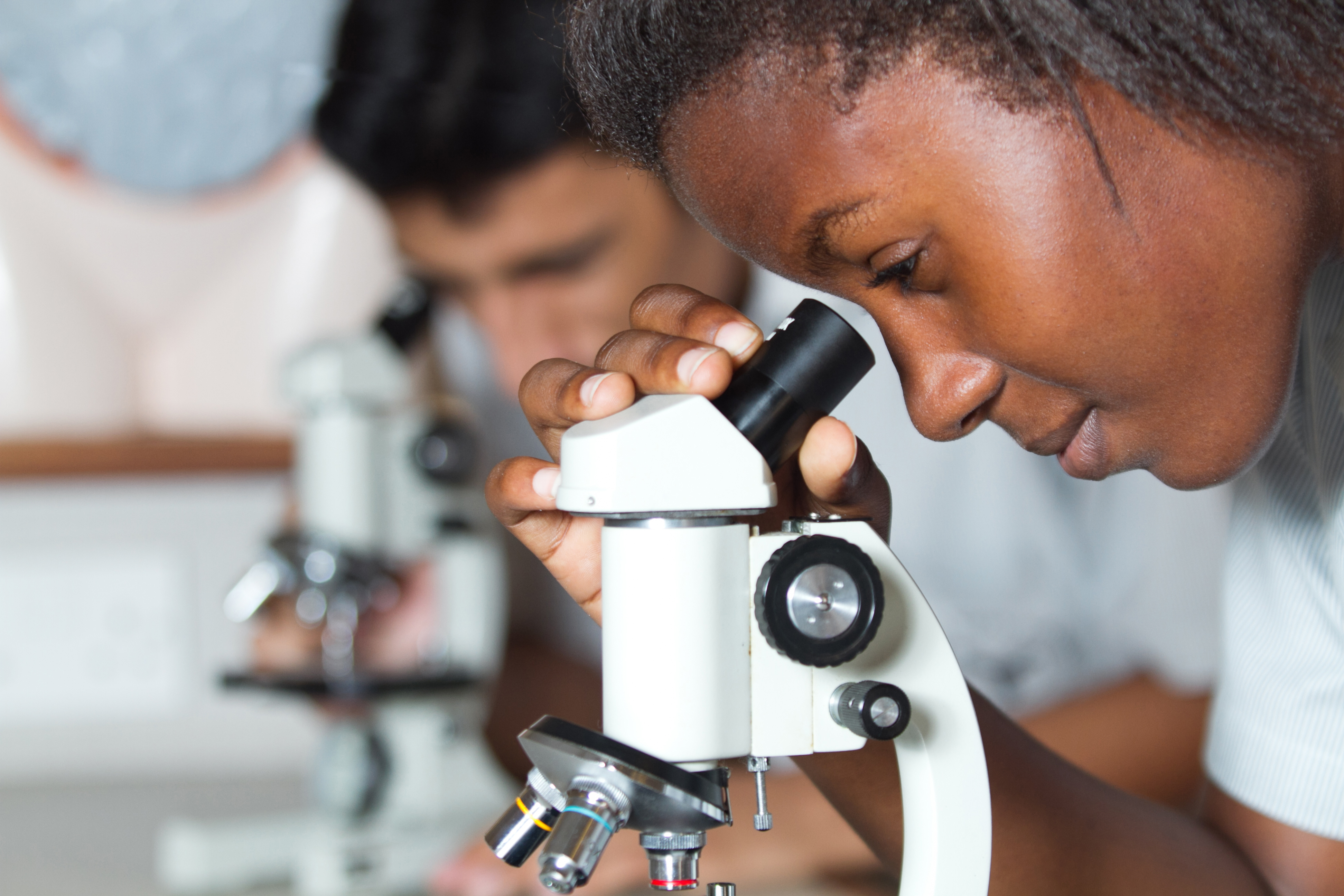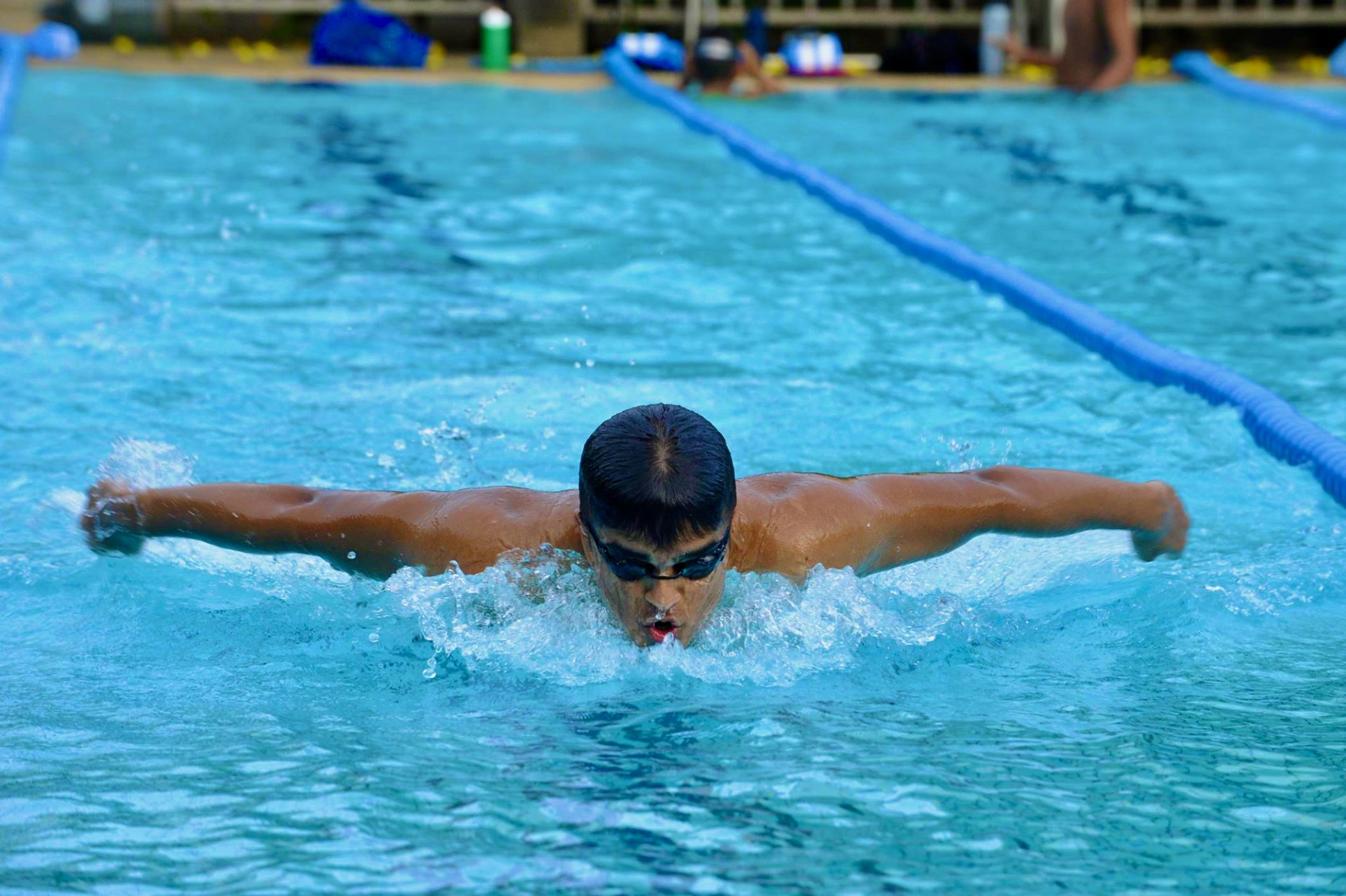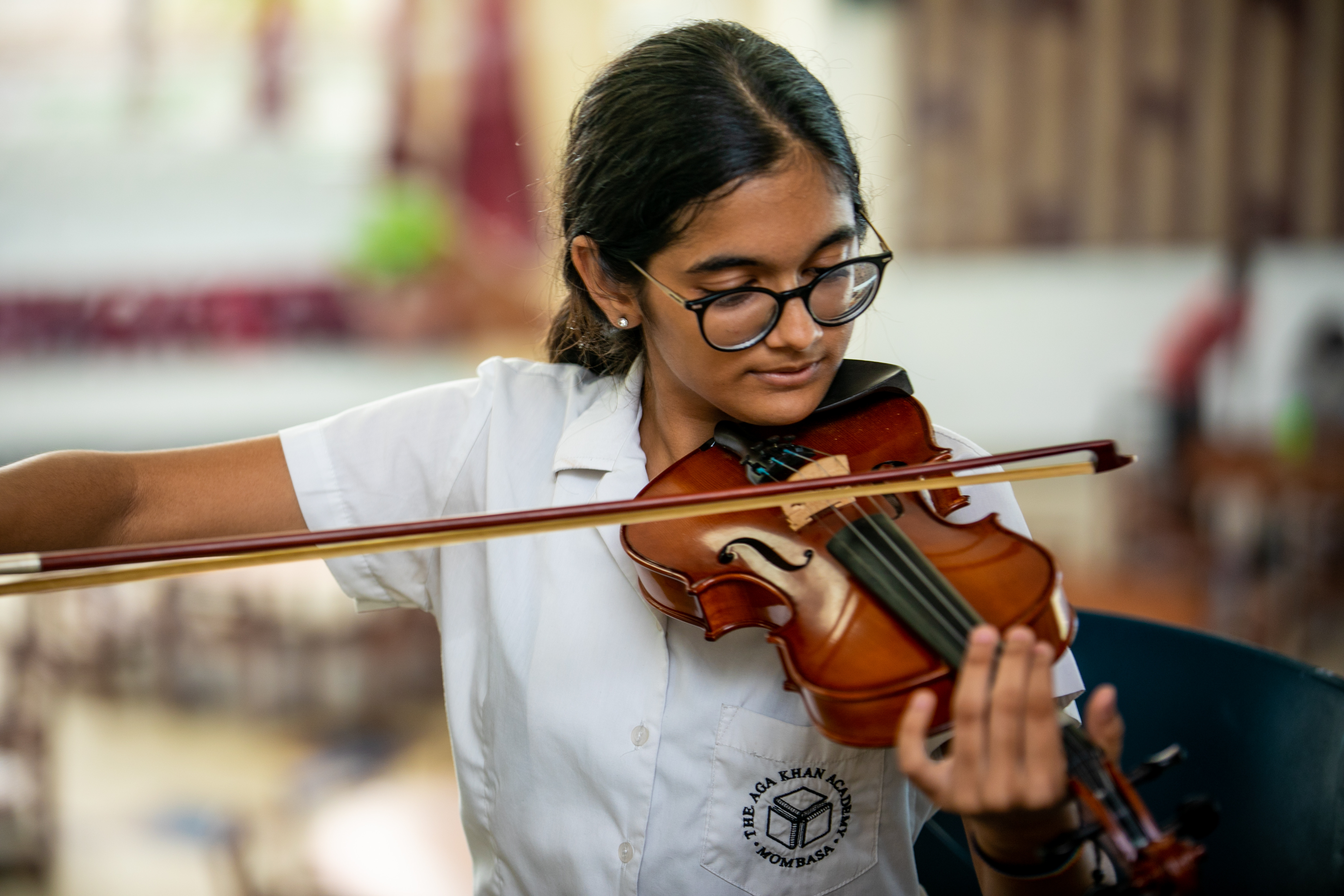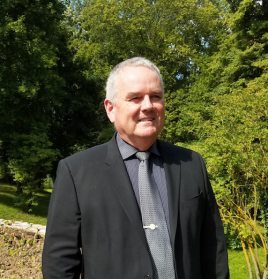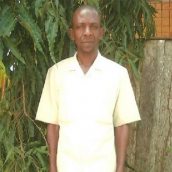Academy PYP Network sharing session
Saturday 3rd Sept, 2016: The Academy Junior School is hosting a session on IB standards and practices for fellow PYP educators in Hyderabad. Academy teachers will take part in similar sharing sessions on PYP exhibitions and assessments in other network schools.
Scholarship Programme
The Aga Khan Academy Mombasa is launching a unique scholarship programme to attract Kenya’s brightest young minds to join the Academy.
Six merit-based scholarships of up to 50% off fees for outstanding students who can demonstrate superior academic ability. This includes:
- B average for international curricula
- B+ for KCSE students
- 390+ for KCPE
Applicants must have also excelled outside of the classroom in one or more of the following areas:
- Leadership in the service of others
- Innovation in Science, Technology, Engineering or Math
- Environmental Responsibility
- Performing Arts
- Team Sports
Scholarships will be awarded to students from a diversity of socioeconomic, cultural, ethnic, linguistic and other backgrounds across Kenya. Based on demonstrated merit and financial need, scholarship awards may cover up to 50% of school fees, including residential fees. View the fee schedule here.
Scholarships are open to new students applying for admission in August 2022. The deadline for application is 1st July 2022.
The process:
Students should make an application through the normal admissions process (an application fee is payable) and indicate their interest in applying for the Aga Khan Academy Scholarship Programme.
*AKASP is open to new students only; those already enrolled at the Academy are not eligible.
- Fill in the below form.
- An initial assessment to determine suitability for the scholarship programme will take place.
- Shortlisted candidates will be invited for a personal interview with the Dean of Admissions. This interview will assess the ability of the student to contribute significantly to the Academy outside of the classroom.
- Final selection includes an interview with the Head of Academy and the Dean of Admissions.
*The decision of the Academy in awarding these scholarships will be final.
Eligibility:
- To apply, students must be residents in Kenya.
- The scholarships are open to students who are able to demonstrate exceptional academic ability and the potential to benefit from a unique educational programme based on the International Baccalaureate and the Aga Khan Strands.
- Scholarships are needs-based and will take into account aspects of the financial position of the family at the time of interviews.
- Scholarship awards may not cover all costs, and some scholarships will require the candidate and their family to contribute part of the cost.
To know more about this programme, please email mba-admissions@agakhanacademies.org
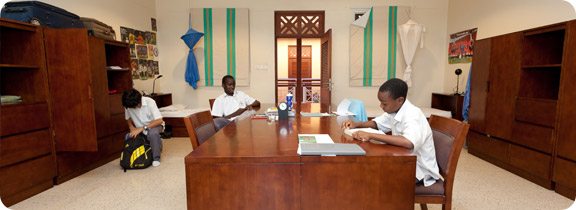
Residential Campus calendar
Please note these dates are subject to change. More specific, programme related information will be given as it becomes available.
| Date and Event | Notes |
| August 19, 2011 after 4:00pm Move-in day for new residential students |
Students move-in, accompanied by parent. Parents can stay the night in Mombasa and come back to campus on Saturday for breakfast. Parents depart after lunch. |
| August 20, 2011 before 6:00pm Move-in day for returning students |
Students to return to The Academy. Parents are encouraged to drop off their child and meet their new Dorm Parent. |
| September 6, 2011 Senior School Prize Giving |
On the 6th, awards ceremony at 2:45pm for Senior School students to recognize outstanding achievements from the 2010/2011 academic year. Parents are welcome to attend. |
| October 14-15, 2011 Parent-Teacher Conference and last day of school before mid-term |
Parents are highly encouraged to attend the Parent-Teacher conference during the day. Students are able to go home for the mid-term after meeting respective teachers. If parents do not attend, students still need to meet their teachers. Students will be able to leave for holidays only after meeting with teachers. Students are also able to remain on campus for the holiday. |
| October 23, 2011 Mid-term ends |
Students are required to report to school by 6pm. |
| December 9, 2011 Last day of school before December holidays |
Students are able to leave for holidays after 1:30pm. Please arrange flights after this time. The Academy officially closes on Saturday, December 10 after lunch. |
| January 3, 2012 December holidays end |
Students are required to report to school by 6pm. |
| January 6, 2012 Move-in day for new residential students |
Students move-in, accompanied by parent. Parents can stay the night in Mombasa and come back to campus on Saturday for breakfast. Parents depart after lunch. |
| February 15, 2012 Last day of school before mid-term and residential camp |
Students may leave after 4pm. Please do not make transport arrangements departing earlier than 5:30pm. Students may remain on campus for the holiday. For students in Years 6-8, the residential community goes on an expedition. The camp is mandatory for all students in Years 6-8 and is optional for older students. The cost of the trip is Ksh 10,000/student. |
| February 19, 2012 Mid-term ends |
Students are required to report to school by 6pm. |
| March 29-30, 2012 Parent-Teacher Conference and last day of school before April holidays |
Parents are highly encouraged to attend the Parent-Teacher conference during the day. Students are able to go home for the mid-term after meeting respective teachers. If parents do not attend, students still need to meet their teachers. Students will be able to leave for holidays only after meeting with teachers. Students are also able to remain on campus for the holiday. The Academy officially closes on Saturday, March 31 after lunch. |
| April 15, 2012 Easter holiday ends |
Students are required to report to school by 6pm. |
| June 22, 2012 Last day of school |
Students must clear with the Dorm Parent before they may leave. School ends at 12pm. Please do not arrange any transport before 4pm as students need to clear their belongings. |
Jonathon Marsh: Supporting the quality of teaching at the Academies
Jonathon Marsh has system-wide responsibility for teacher development at the Aga Khan Academies network. Having worked for the Academies for the past 10 years, he has previously had leadership roles in education in Canada, Hong Kong, the United Arab Emirates and the United Kingdom, including as the Head of Professional Development and Research for the International Baccalaureate. In this interview, he shares the highlights of his position at the Academies, and reflects on how the Academies are unique from other educational institutions.
Tell us the journey that led you to the Academies.
I first came across the AKDN when I was in Hong Kong. I read a recruitment ad in the Times Higher Education magazine seeking people to fill positions at the then recently opened Aga Khan University in Karachi. I remember looking at the ad and experiencing a strong sense of conviction that one day I would work for this organisation. More than a decade later, while working at the IB, I was introduced to Salim Bhatia [Director of Academies] by the then Chair of the IB’s governing council. Salim asked me if I knew anyone that would be interested in taking a lead role in teacher development for the emerging Academies. At the same time, he was in discussion with Monique Conn, who was my line manager at the IB, about the position of Academic Director. Monique accepted the position soon thereafter and persuaded me to join as well.
What is the most rewarding aspect of working for the Aga Khan Academies?
I think the majority of my colleagues would unanimously reply “the students”, and they would be right to do so. However, for me the job is about quality teaching, and having the opportunity to really influence the discourse on teaching and learning in the countries and regions we work within is very exciting. Having a chance to work both at the high end with government ministries, NGOs and universities and at the chalk face with individual teachers, especially young people new to teaching, provides me with a full spectrum of very meaningful and satisfying engagements.
What led you to choose your particular career?
I don’t see it as a career but rather as a vocation. I see the profession of teaching as critically important to the health and ongoing development of any society. As such, I can think of no better way to contribute to the betterment of humanity.
What attracted you to the Academy?
First and foremost, the vision and mission. Especially attractive is His Highness the Aga Khan’s insight into the importance of the profession of teaching and the need to restore its much diminished status in the various geographies within which the Academies are located.
Reflecting on your time at the Academy, is there a particular day that was especially rewarding and memorable?
There are too many to count. Among them perhaps two stand out: 1) the graduation of the first cohort of teacher interns completing the Teacher Preparation Programme (TPP), and 2) becoming the first (and as yet only) school network in the world to offer a teacher development programme recognised under the IB Educator Certificate initiative. The building of the TPP and overcoming the many associated challenges took an extraordinary amount of effort, with contributions coming from many people. Seeing it come to fruition was very gratifying.
How do you think you contribute to the inner workings of the Academies and to the achievement of its goals?
I work collegially with the Heads and senior staff in each Academy to think through and implement systems to support the quality of teaching across the network. This includes working with both external and internal providers to source and implement professional development programmes; liaising with universities and other AKDN agencies to define and conduct research and development projects; providing support for the collection and analysis of standardised data; ongoing development and application of the Academies’ teacher appraisal programme; specifying career pathways for teachers; and contributing to the specification of the Academies outreach strategy.
What sort of positive impact have the Academies had on you?
I have gained a great deal of knowledge and understanding around what it takes to start up a high quality school. I have also gained a great deal of insight into the full complexity of running a school. I have always had a great deal of admiration for those brave and committed enough to teach, but my admiration has grown considerably for those who continue to do so under very difficult circumstances.
In what ways has the Academy helped you to become a more effective advocate in the education world?
I am nearing the end of my professional life (I am not really sure what that means other than a euphemism for being over 60), and my role in the Academies has provided me with a unique opportunity to apply much of the knowledge and understanding I have gained over the years. I have drawn upon my background in philosophy and spirituality to better ground my efforts to develop systems within His Highness’s vision for the Academies. I have drawn upon my studies in educational technology to inform system development. My time at the IB has helped me to understand the particular needs of IB teachers and how to support them. The years spent in tertiary education have enabled me to better liaise with universities and support research and data collection. Working with the Academies has allowed me to not only to promote principles of good practice and high quality education, it has provided me with a platform to do so in places that are hungry for change and very much in need of educational reform.
How would you describe the teacher development work with which you engage?
I would describe it as very rewarding precisely because it is very challenging. When it comes to teacher development, we are dealing with many layers of readiness among practitioners. Each country has its own approach to teacher preparation, and within each country not all teachers are given equal standing. For example, senior school teachers are typically better trained and better paid than junior school teachers. Junior school teacher preparation often does not involve gaining a university degree, and only those who could not get into a university opt for junior school teacher training programmes. Convincing people that teaching young children is at least as complex and difficult as teaching older kids is surprisingly difficult. Yet how are we supposed to achieve the kinds of sophisticated learning outcomes envisioned by His Highness if we do not prepare students for them right from the beginning? Building the necessary culture of professional respect for the expertise of all teachers, and indeed helping teachers to define and value their own professional identities is particularly important and very challenging.
What do you think sets the Academies apart from other educational institutions?
The Academies are not unique. There are other schools around the world which share many of the same attributes. However, they do have some very interesting defining characteristics. Firstly, the degree to which they are vision and mission led is compelling for many. Secondly, the commitment they have to provide access to excellent education to talented kids regardless of their ability to pay. Thirdly, their commitment to serve the countries they are in by providing an international standard of education for a majority of local students and employing 80% local teachers. Lastly, their rootedness in the local community and their ability to draw upon the many strengths of the wider AKDN as well as the committed and generous support of the Ismaili community.
How do you think the Academies ensure a climate of pluralism?
The Academies strive to value each child and each member of staff as a unique individual, and expect each to make a unique contribution. A pluralistic perspective is promoted by bringing together individuals from across cultural boundaries, tribal lines, disparate geographic locations, genders, ages, faiths, and economic backgrounds and providing them with a continuous and intensive opportunity to engage with, understand, and come to value each other’s “otherness”.
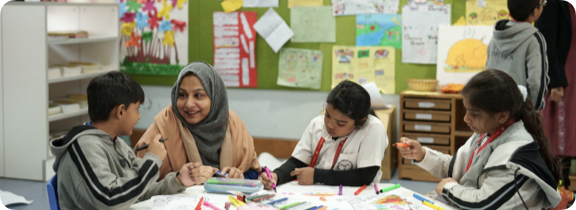
Meet the Staff
Senior leadership team |
|||||
| Head of Academy |
Suvina Shunglu |
||||
|
Principal Senior School |
Fahmida Chowdhury |
||||
|
Principal Junior School |
Shatila Reza |
||||
| Dean of Studies |
Joseph Sydney Hamkari |
||||
| Head of Finance |
Karim Nathu |
||||
| Dean of Admissions |
Paul Davis |
||||
Administration and support services |
|||||
|
Personal Assistant to Head of Academy |
Fariza Sddika | ||||
| Finance Manager |
Abdullah Al Jaber |
||||
| Head of Administration |
Malik Mahemood |
||||
| Facilities and Maintenance Manager |
Kazi Atiqul Haque |
||||
| IT Manager |
Faruk Sikder |
||||
| Head of Human Resources |
Annie Sharmeen |
||||
| Human Resource Specialist |
Ayesha Sirajee Leena |
||||
| Security and Transport Manager |
Mahmudul Hasan |
||||
| Tansport Supervisor |
Mustafizur Rahman |
||||
| Procurement Supervisor |
Delwer Hossain |
||||
| Communications Manager |
Monjure Alahi Haider |
||||
| Admissions Manager |
Momtaz Mumu |
||||
| Food Services Manager |
Mohammad Mainuzzaman |
||||
Junior school faculty |
|||||
| Principal |
Shatila Reza |
||||
| PYP Coordinator |
Tanjina Hossain |
||||
| Early Years Coordinator |
Shahnaz Khan |
||||
| Administration Assistant |
Zohra Virani |
||||
|
Homeroom Teachers |
|||||
| KG1 | Karima Salim Jiwani | ||||
| KG2 | Jannatul Ferdous | ||||
| KG3 | Islama Khandoker | ||||
| Grade 1 |
Fahmida Sharmeen Rahman Kaniz Taskina Trisha |
||||
| Grade 2 |
Shama Ahmad Humayra Rayhana Khan |
||||
| Grade 3 |
Nadia Tazrin Chowdhury Hosna Ara |
||||
| Grade 4 |
Saadiah Shams Shakhawat Tasnim Janan Fatema Bushra |
||||
| Grade 5 |
Farjana Mobin Anjuman Ara Begum Sabina Yasmeen |
||||
|
Teaching Assistants |
|||||
| Junior School |
Nadya Malik Mahemood Sadia Chowdhury Bushra Naziat Islam Shupti Zarmin Samdani Neshma Gilani Afrin Shahid Farhana Afroj Khan Rafa Mahmood Syeda Nafisa Fahrin Sonia Islam NafisaTasneem Mubina Rahman Uzma Perveen Lisa Aafra Fatema Karim Nafisa Nawar Tajim Chakma Md Shakhawat Hossain Noor Salam Kamrul Islam |
||||
|
|
|||||
|
Single Subject Teachers |
|||||
| Art and Craft |
Saiful Hoq Shadal |
||||
| Physical Education |
Tasnuva Haque |
||||
| Music |
Sanchita Saha |
||||
| IT |
Ashraful Alam |
||||
|
Student Learning Support Unit |
|||||
|
Student support coordinator & learning support Lead |
Maliha Afzal |
||||
|
Learning Support Teachers |
Benta Odipo Hilde Napeñas Neculai Pieptu |
||||
Professional Development Centre & Outreach |
|||||
| Head of Professional Development Centre and Outreach |
Md. Musle Uddin Bhuiya |
||||
| Education Officer |
Tozammel Haque |
||||
Senior school faculty
|
|||||
|
Principal Administrative Assistant |
Fahmida Chowdhury Farida Ali |
||||
|
Diploma Programme Coordinator Middle Years Programme Coordinator |
Usha Kasana Ira Srivastav |
||||
|
Theory of Knowledge Coordinator |
Jina Saha |
||||
|
Business Teacher & Supervisor of Sports' CAS and Activities |
Munira Karim |
||||
|
Lead Teacher Performance Art and Personal Project Coordinator |
Vishwajit Shinde |
||||
|
Library Syeda Mukta Begum (Head Librarian) |
|||||
|
Zahura Begum (Junior School Librarian) |
|||||
|
Mir Adiba Awlad (Teacher Librarian) |
|||||
|
Science Ira Srivastav (Lead) |
|||||
|
Anika Tasfia Rodoshi |
|||||
| Abul Fazal M. Shahriar | |||||
| Shahriar Rashid Khan | |||||
|
Rokaiya Ahmed |
|||||
| Ramisa Bushra | |||||
| Salsabil Tabassum Synthia (Physics) | |||||
|
|
|||||
|
English Raja Sen (Lead) |
|||||
| Nusrat Amena Shampa | |||||
| Aziza Choudhury | |||||
| Sultana Nasrin Chowdhury | |||||
| Mohammad Tanvir Amin | |||||
|
Bangla Rokhsana Afroz (Lead) |
|||||
|
Mukta Jasmine |
|||||
|
Mafruha Rahman |
|||||
| Mousumi Islam | |||||
| Shamima Nasrin Shanta | |||||
| Rifat Ara Islam | |||||
|
Mathematics Manasi Biswajeet Mallick (Lead) |
|||||
|
Fatima Momin |
|||||
|
Nazifa Rezwana Haque |
|||||
|
Mohammad Zafar Mahmud |
|||||
|
Shamanta Sharmin Shithi (Theory of Knowledge Coordinator) |
|||||
|
Tabassum Binte Jamal |
|||||
|
|
|||||
|
Expressive Arts (Design) Atia Maqshura (Lead) |
|||||
|
Shammi Akhter Chowdhury (Computer Science and EE Coordinator) |
|||||
|
Syeda Naushin Tabassum |
|||||
|
Fahmida Khatun (Visual Art) |
|||||
|
Md. Shakhawat Hossain Bhuyian (Visual Art) |
|||||
|
Syeda Naushin Tabassum |
|||||
|
|
|||||
|
Humanities Department Jina Saha (Lead) |
|||||
| Kazi Jebun Nesa | |||||
| Momena Farzana Hossain | |||||
| Tasnia Tabassum | |||||
| Mahmuda Akter (Integrated Social Studies) | |||||
| Nabila Islam (Service Learning Coordinator) | |||||
|
Physical Health Education (PHE) Amit Ahire (Lead PHE Teacher and Wellness Coordinator) |
|||||
| Most. Ulfat Zahan | |||||
| Classroom Technology Integration | |||||
| Md. Ramim Ul Haq | |||||
| University Counsellor | |||||
| Nusrat Sharmin | |||||
|
Infirmary Medical Officer: Dr Mahin Hossain |
|||||
|
|
|||||
|
|
|||||
To contact any staff via email, put their first and last name together and separate it with a "." followed by @agakhanacademies.org (ex: john.doe@agakhanacademies.org).
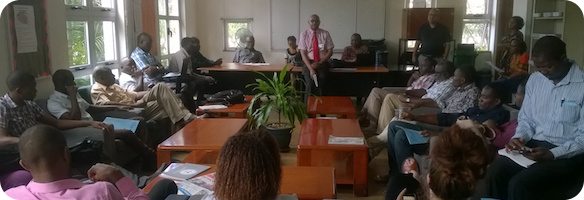
Meet the Staff
Senior leadership team |
||||
| Head of Academy |
Colin Webster |
|||
| Head of Finance |
Patrick Wambua |
|||
|
Principal Senior School Principal Junior School |
Francis Kariuki Nuala Alibhai |
|||
| Dean of Studies |
Bernard Dudi |
|||
| Head of Residential Life |
Benson Wafula |
|||
| Head of Facilities and Campus Infrastructure |
Bruce Iningu |
|||
| Head of Human Resources |
Stella Njagi |
|||
Administration and support services |
||||
|
Personal Assistant to Head of Academy |
Florence Oduol | |||
|
Business Analyst |
Sheetal Shah | |||
| Accountants |
Maureen Makachia Hannah Kinuthia Amorale June Michael Kizito |
|||
| Finance Manager |
Evangaline Wachira |
|||
| Head of Administration |
Morris Kitheka |
|||
| Administration Assistant |
Nanna Adede |
|||
| Assistant Manager, Facilities Administration |
Fredrick Agolah |
|||
|
Housekeeping Supervisor |
Kennedy Ogwang' |
|||
| Laundry Supervisor |
Wilson Guya |
|||
| Laundry Attendants |
Raphael Ngala Hellen Mbori Jackline Odhiambo Victor Mukabana Mary Okoth |
|||
| IT Manager |
Alex Oyugi |
|||
| IT Technicians |
Eugene Auka Byran Otieno Bonface Mulama |
|||
| Human Resource Officer |
Conceptor Odeke Festus Nyawa |
|||
| Executive Chef |
Nancy Chepkoech |
|||
| Assistant Manager, Dining & Events |
Gideon Ondieki |
|||
| Head Cook |
Kithunga Mangi |
|||
| Procurement & Special Projects Manager |
Sameer Rahemtulla |
|||
| Procurement Assistant |
Peter Amiani |
|||
| Communications Manager |
Aalia Kurji |
|||
| Marketing Manager |
Mary Wanjiru Kimani |
|||
| Admissions and PR Manager |
Rukaiya Husain-Devani |
|||
| Admissions Assistant |
Naomi Nyakundi |
|||
| Data & Examination Coordinator |
Domnic Bollo |
|||
| Administration Assistant, Senior School |
Elizabeth Bwana |
|||
| Lab Technicians |
John Ngala Kennedy Cosmas Stephen Kassim |
|||
|
Receptionist Events Assistant |
Victoria Sada Bakari Kazungu |
|||
| Vice Principal - Data & Academic Systems |
Kipkemoi Serem |
|||
| Residential Manager |
Benson Wafula |
|||
|
Senior School Librarian Assistant Librarian |
Joyce Wangari Maureen Mumasaba |
|||
| Curriculum Development Manager |
Alex Holland |
|||
| Service Learning and Student Leadership Development Manager |
Kauthar Mohamed |
|||
| Vice Principal Student Support and Well-being |
Minal Shah |
|||
|
|
||||
Junior school faculty |
||||
| Principal |
Nuala Alibhai |
|||
| Vice Principal, PYP Coordinator |
Kepha Mogere |
|||
|
Administrator – Junior School Junior School – Library Clerk |
Rebecca Davis Tungwa Nyiro |
|||
|
Student Support and Well-being Co-ordinator - Junior School |
Peter Muraguri | |||
|
Class Teachers |
||||
| Year 1 Class Teachers |
Margaret Mwaka |
|||
| Year 2 Class Teachers |
Hope Lumbukeni |
|||
| Year 3 Class Teachers |
Enitta Olang' Lillian Mwendwe |
|||
| Year 4 Class Teachers |
Ruth Msae |
|||
| Year 5 Class Teachers |
Anuradha Mohsin |
|||
|
Teaching Assistants |
||||
| Junior School |
Tom Odhiambo Janet Ambila Edgar Barasa Maryam Shallo |
|||
|
|
||||
|
Single Subject Teachers |
||||
| Kiswahili |
Esther Kariuki |
|||
| Art |
Parveen Samnani |
|||
|
Music Drama |
Alice Adhiambo Gloria Muthoni |
|||
| P.E. |
Beverlyn Injairu |
|||
| Trandlanguaging |
Fatuma Mukoya |
|||
|
Student Learning Support Unit |
||||
| Junior School Student Support & Well-being Co-ordinator |
Peter Muraguri |
|||
Professional Development Centre & Outreach |
||||
| Head of Professional Development Center |
Dr Maina WaGioko |
|||
| Learning Toolkit Kenya Coordinator |
Enos Kiforo |
|||
| Learning Toolkit PD Coordinator |
Rose Iminza |
|||
| Foundation for Learning (F4L) Course Coordinators |
Charles Maina Ahmed Ibrahim Dr Benerdeta Malusi |
|||
| F4L Monitoring & Evaluation Officer |
Paul Ngugi |
|||
| Administration Assistant, F4L |
Pius Mulatya |
|||
| IT Support Officer, F4L |
Samuel Kimwele |
|||
| TPP Coordinator |
Dr Tom Abuto |
|||
Senior school faculty
|
||||
|
Principal Personal Assistant to Senior School Principal |
Francis Kariuki Lillian Kameno |
|||
|
Diploma Programme Coordinator Middle Years Programme Coordinator |
Julius Menza Nancy Oruko |
|||
|
Vice Principal, Data and Academic Systems Vice Principal Student Support & Well-being |
Serem Kipkemoi Minal Shah |
|||
|
Teacher Coaches |
Antoinette Blain Natasha Haque |
|||
|
Science Department Alice Ndung'u (Head of Department) |
||||
|
Erick Agira |
||||
| Godfrey Kokeyo | ||||
| Moses Orwe | ||||
|
Lucy Mwandawiro |
||||
| Kiran Pandey | ||||
| Duncan Russell | ||||
| Fred Bongu | ||||
| Jackson Ltorisha | ||||
|
|
||||
|
English Department Priti Avetikian (Head of Department) |
||||
| Iyad Yuka | ||||
| Amos Muuo | ||||
| Faith Abuya | ||||
| Beatrice Mecha | ||||
|
Mathematics Department Eric Ouma (Acting Head of Department) |
||||
|
Vincent Mboga |
||||
|
Edwin Basiime |
||||
| Evance Ogada | ||||
| Safari Fondo | ||||
| Catherine Orwe | ||||
|
Technology Fredrick Wagah (Head of Department) |
||||
|
Serem Kipkemoi |
||||
|
Nelson Wakesa |
||||
|
Perpetual Mwangi |
||||
|
|
||||
|
|
||||
|
Expressive Arts Grace Owaga – Head of Department |
||||
|
Antoinette Blain (Teacher Coach) |
||||
|
Ernest Kisali |
||||
|
Census Wandera |
||||
|
Joyce Agiri |
||||
|
Eric Mukiira |
||||
|
|
||||
|
Modern Foreign Languages Michael Ojuma (Head of Department) |
||||
| Shariff Al Beiti | ||||
| Henry Nyagah | ||||
| Husniya Sharkamamadova | ||||
| Fatuma Ibrahim | ||||
| Daniel Otogo | ||||
| David Ochola | ||||
|
|
||||
|
Humanities Department Susan Abuto (Head of Department) |
||||
| Mary Nyandieka | ||||
| George Kamau | ||||
| Charles Sebalinga | ||||
| George Kamau | ||||
| Beryl Owino | ||||
|
Lydia Kemunto |
||||
|
Physical Health Education Department Antony Ndungu (Head of Department) |
||||
| Jackson Kanyingi | ||||
| Polycarp Ageta | ||||
| Yusuf Kauli | ||||
| Pauline Juma | ||||
|
Life Guards: Raymond Mwatsuma Yusuf Kauli |
||||
|
Sports Store Keeper Farid Ahmed |
||||
| University Counsellors | ||||
| Lucinda Ochieng | ||||
| Paula Russell | ||||
|
Academy Fellows |
||||
|
Jordan Westlake John Morris Nyagaka Shane Omole Ozru Abdurahmonov Zahra Muia Catherine Delight |
||||
|
Health & Wellness Center Medical Doctor: Dr Eric Wekesa Wanjala |
||||
|
Nurses: Kelvin Mbaya Eunicate Karimi Jacktone Okoro Milka Gatungoh |
||||
|
|
||||
|
Head Cooks |
Emily Oyugi Kithunga Mangi Irene Kwekwe |
|||
|
Cooks |
Irene Kwekwe Dones Mwachia Jedidah Muthui Fridah Mkara Mary Mukana Salim Juma Jean Livumbazi Irine Auma Isaac Achevi Peter Kaviti Brenda Kaiza |
|||
|
Stewards: |
Jacob Kitsao Betty Khavele Sophie Okeyo Eunice Indulachi Phyllis Bwamula Kioko Muli Emily Salame |
|||
|
|
||||
|
|
||||
To contact any staff via email, put their first and last name together and separate it with a "." followed by @agakhanacademies.org (ex: john.doe@agakhanacademies.org).
Participants of the AKA Outreach Programmes
Said Mwabeha: Sparking a Light in Students by Transforming School Leadership
Said Mwabeha became a teacher in 1990. He was drawn to the profession because it provided an opportunity to positively impact a range of people. “Almost everyone on earth,” he explains, “be it a president, be it a doctor, be it an engineer—all of them pass through a teacher. So, to me, a teacher is a very important person.”
Mwabeha aspires to spark a light in others through his teaching and says the Professional Development Centre at the Aga Khan Academy in Mombasa has enhanced his ability to do so. As the Head of Vuga Primary School in the coastal area of Kenya, Mwabeha attended a course focused on Leadership Management at the Academy.
“It really transformed me,” Mwabeha says of the course, which dealt with how Heads of School could make better use of their resources to enhance academic performance. While he previously undertook initiatives to improve the school as a “one-man shop”, he now takes an integrated approach to solving problems that involves a range of teachers, parents and students.
The Academy’s programme also spurred the creation of an association of teachers in Kwale County, where Vuga Primary is located, at the end of 2012. As Chair of Kwale Educational Leaders' Association, Mwabeha is leading teachers from 23 schools in formulating a strategic roster of activities to strengthen their academic performance. Their strategy is two-pronged. On the one hand, they plan to undertake workshops and other initiatives to improve pedagogy. On the other, they are organising awareness meetings and conferences for parents and teachers to discuss the importance of education. They hope to overcome the challenges and problems created by families that do not prioritise education.
Meanwhile, inside the classroom, Mwabeha is working hard to spark intellectual curiosity in his pupils. After receiving training in pedagogy at the Academy, he has promoted the use of more participatory teaching methods, both in his own classroom—where he teaches Social Studies and Religion courses to students in grades 4, 6 and 8—and in those of his colleagues. “It gives [the students] an opportunity to explore more and to discover more by themselves,” he explains. He previously spent the majority of classroom time lecturing, as is common in Kenya, but finds that facilitating class discussions is more fruitful.
By Alia Dharssi
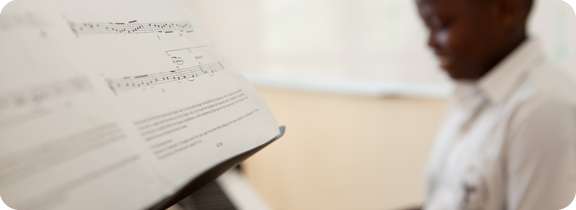
Co-curricular Programmes
Co-curricular programmes enable students to realise their potential in a variety of settings beyond the classroom. Students develop a sense of self-awareness and an understanding of school and community needs and opportunities. They also learn how to apply their gifts and skills to make a positive impact.
At the Academy, we believe in a balanced, rounded, comprehensive school experience. As this includes both academic and co-curricular experiences, we encourage our students to do their best both in and outside the classroom.
We will offer outstanding sports facilities that will include:
- swimming and diving pools
- cricket, soccer and hockey pitches
- basketball and volleyball areas
- tennis and squash courts
- dance studio
- gymnasium
- athletics tracks.
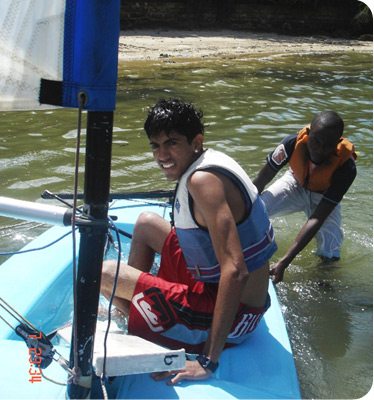 Children with special sporting gifts will be encouraged to develop their talents in every way. Children with special gifts in music, art or drama will similarly be encouraged through opportunities to practise and perform while at the Academy.
Children with special sporting gifts will be encouraged to develop their talents in every way. Children with special gifts in music, art or drama will similarly be encouraged through opportunities to practise and perform while at the Academy.
Our co-curricular programmes are clustered into three main streams, each with a different focus:
Creative Expression
Whether through visual or performing arts, this cluster engages students to think creatively and express their identities and thoughts aesthetically. Through theatre, art, music and drama, students learn to work together and infuse their projects with values and lessons from other parts of their schooling. Individual and collaborative creative projects emphasise growth and development through personal challenge, ultimately resulting in achievable personal goals.
Action
The student as a reflective practitioner is a basic tenet of the Action cluster. Through physical sport—both competitive and non-competitive—students are challenged in their physical growth, and learn values such as good sportsmanship, teamwork and ethical behaviour. We encourage them to extend themselves by trying different activities and working with teammates to pass on their knowledge. In line with developing the student as a whole, a healthy lifestyle complements and enhances academic achievement.
The Academies will be concerned with the whole of the human being—mind, body and spirit—and with the broad range of human aspiration—intellectual, moral, artistic, physical and spiritual. The fact that these are residential academies will contribute enormously to these broad objectives, encouraging students to identify more completely with the school, to help lead it and shape its environment.
The Academies will be concerned with the whole of the human being—mind, body and spirit—and with the broad range of human aspiration—intellectual, moral, artistic, physical and spiritual. The fact that these are residential academies will contribute enormously to these broad objectives, encouraging students to identify more completely with the school, to help lead it and shape its environment.
Citizenship
At the Academy, we encourage knowledge and understanding of humanity and civil society. Through their involvement in citizenship activities, students gain an understanding of the practical implications of their work and study. By collaborating with community groups on sustainable projects, they develop an appreciation for human rights and human dignity, and of how their actions impact the world around them.
To learn more about the Academy's programme, please visit the Academic Programme page.
Activities and Clubs
Extra-Curricular activities and clubs will take place on Tuesdays and Thursdays for one hour after school beginning from 5 September.
As actividades e clubes terão início a partir de 5 de Setembro tendo lugar às terças e quintas, durante uma hora depois das aulas.

